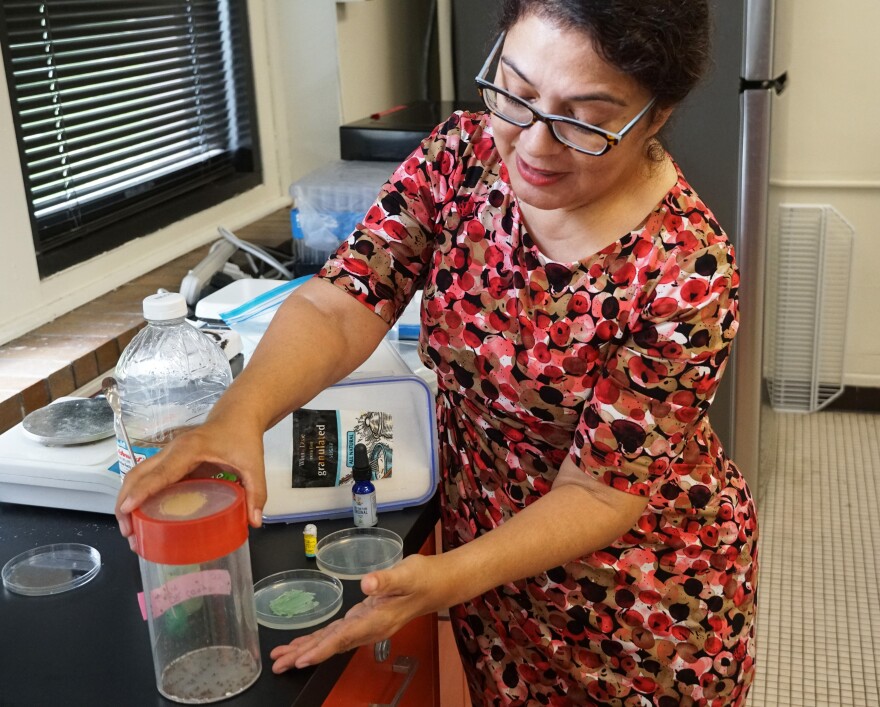Anaejal Davies reaches into a jar of wriggling fruit fly larvae and grasps one with a pair of tweezers.
“You have to be really delicate,” said Davies, positioning the larva under a microscope. “Even the slightest pinch, you could puncture them and they can die.”
The Harris-Stowe State University sophomore is one of a handful of biology students studying how CBD, a compound derived from cannabis plants, affects fruit flies. Most of the students had never worked in a research lab before taking the class and are learning the process from the ground up — while investigating cutting-edge scientific questions.
Unlike THC, the psychoactive compound from cannabis plants, CBD won’t get you high.
The drug is now found in a dizzying array of products — from marshmallows to muscle rubs — and is legally sold in a number of states, including Missouri.
Last year, the FDA approved a prescription form of CBD for treating two rare forms of epilepsy. It’s now touted as a cure-all treatment for a variety of other ailments, such as anxiety and insomnia, but scientists are still working to test these claims.
There are nearly a dozen specialty shops that sell CBD products in the St. Louis area, but consumers can also find them on the shelves of local grocery stores.
Needless to say, public interest in CBD has snowballed in the last two years, said Harris-Stowe biology professor Sandra Leal.
So she decided to capitalize on that — and use CBD as a “teaching tool.”
“From plant biology to human anatomy and physiology, it’s just an amazing way to introduce students, get them excited,” Leal said.
But she’s doing more than weaving cannabis into her introductory biology lectures.
As part of the class, the students are leading their own research experiments to understand how CBD-infused food affects the movement and feeding behavior of fruit fly larvae.
During class, the students watch individual fly larvae under the microscope and count the number of times the tiny, grub-like creatures move their curved jaws.

“They’re eating machines,” Leal said. “They’re like a bulldozer grabbing dirt; they very quickly thrust food into their mouths.”
To measure how CBD affects their movement, they count how many times each larva inches across the petri plate.
For nearly all of the students, including Harris-Stowe senior Markeece Kemper, working in a lab has been a new experience.
“I never did any type of lab experiment in high school, never dissected a frog, none of that,” Kemper said. “I wanted to go ahead and try it out, see what the experience would be like.”
For Kemper, one of the hardest parts of the class was learning how to handle the fragile larvae without accidentally killing them.
Biology major Teyrra Nesbitt had taken lab courses before this one, including human anatomy in high school, but even she had trouble with some of the tasks, such as cooking the yeasty fly food.
One of their first attempts resulted in a too-thick gelatinous paste, she said, which they had to scrape out of graduated cylinders.
“Science is difficult, and it does give you a challenge, which personally I like,” Nesbitt said. “But you learn something every single class. It’s always something different, something you didn’t previously know.”
Follow Shahla on Twitter: @shahlafarzan
Send questions and comments about this story to feedback@stlpublicradio.org




